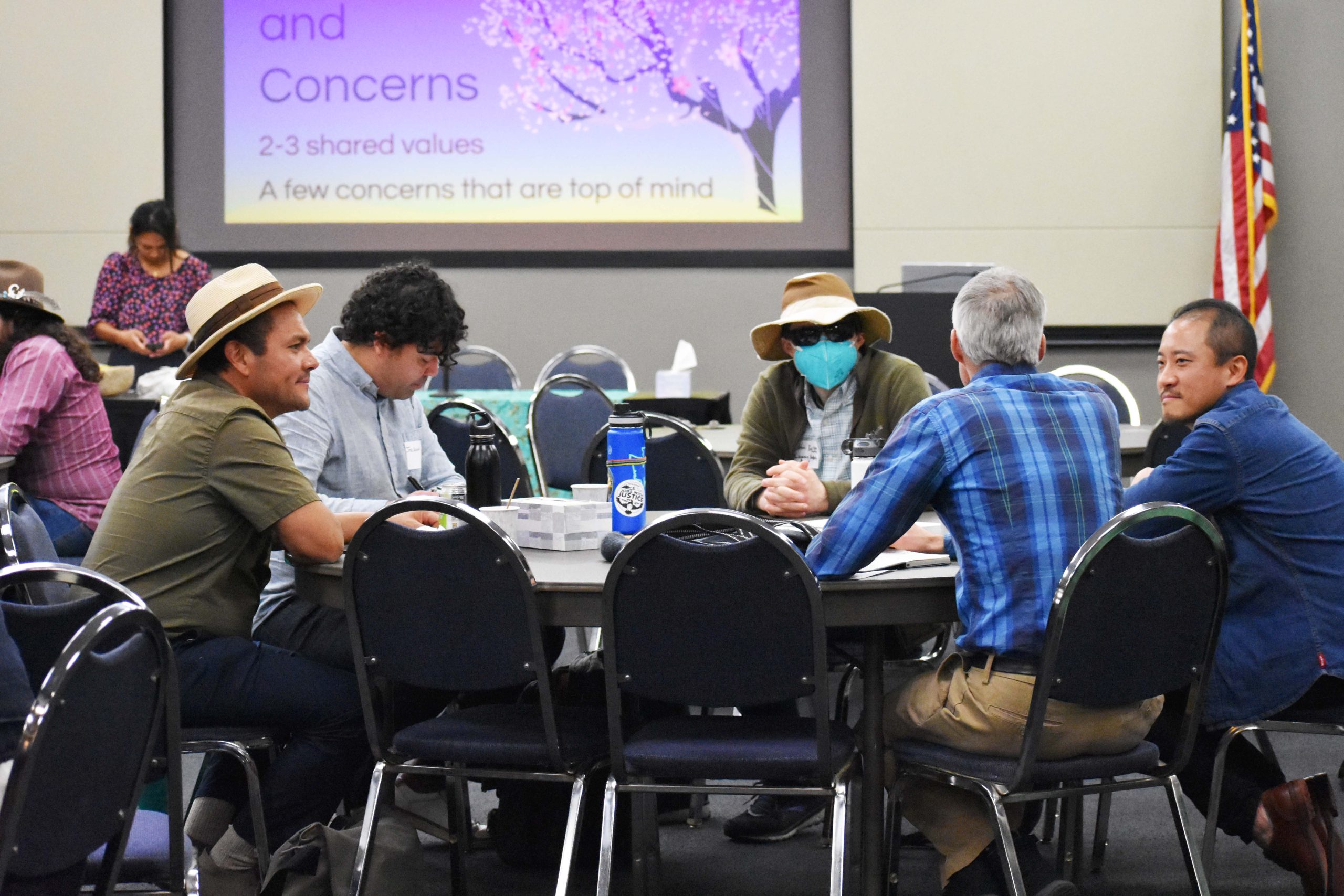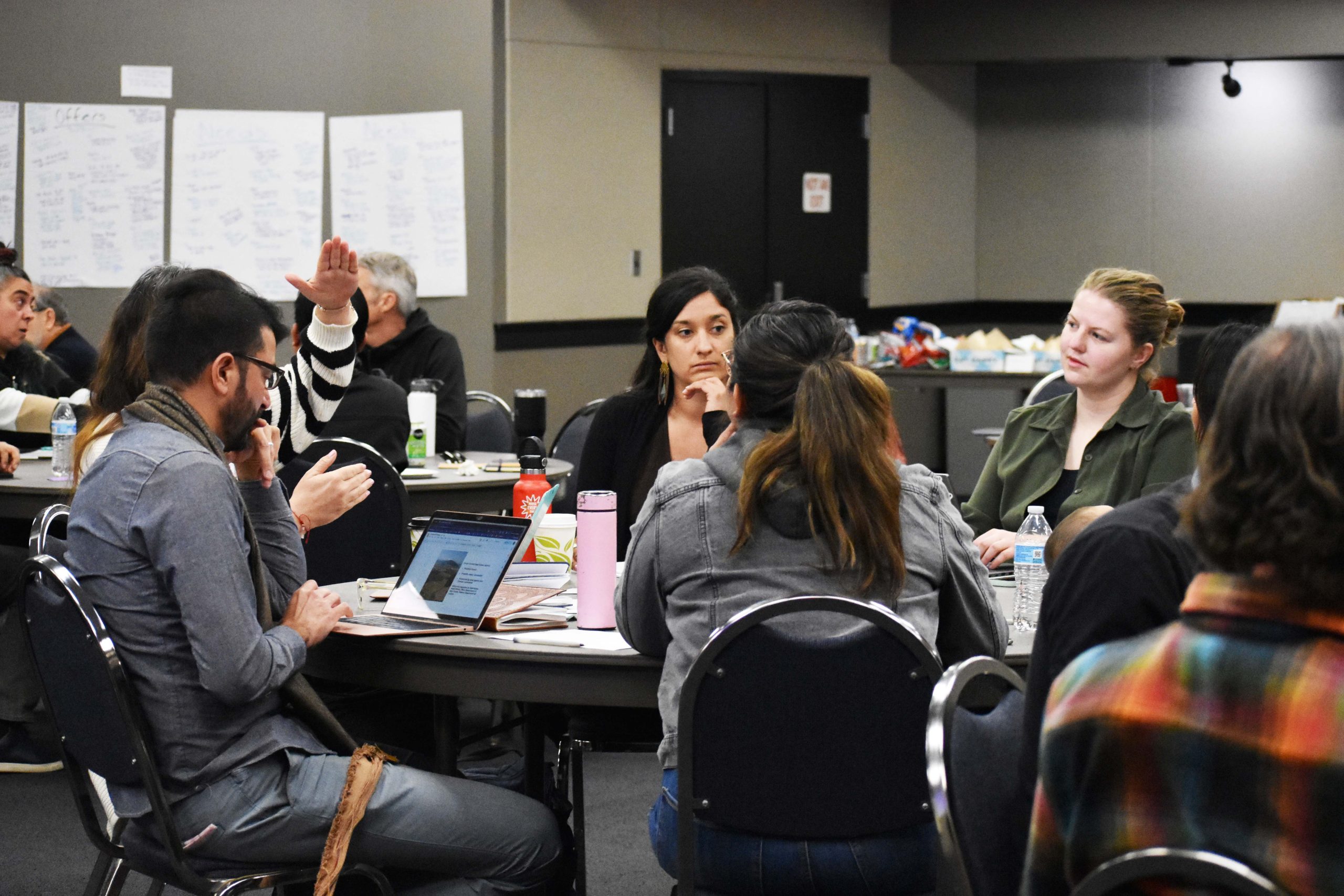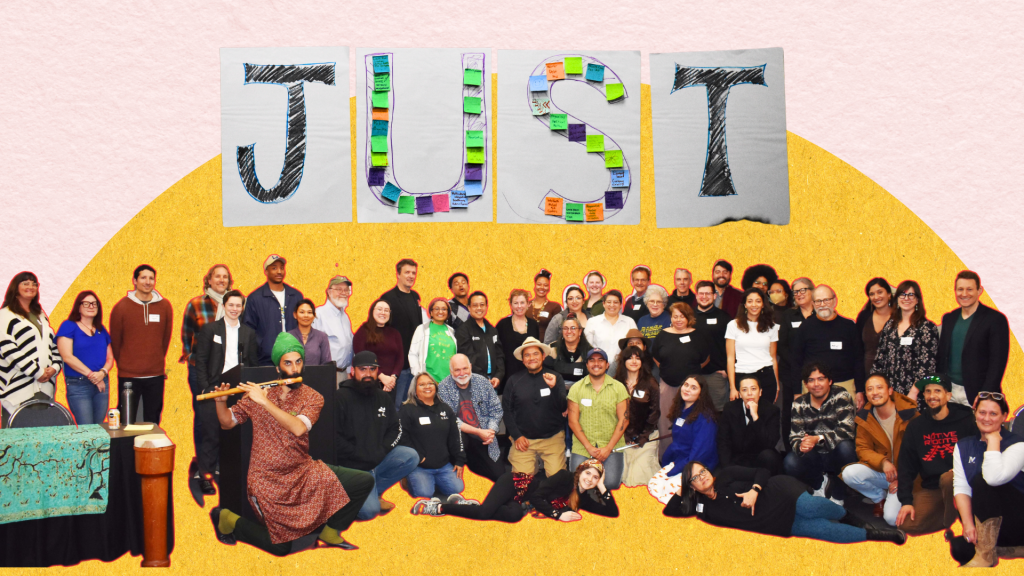From triple-bottom-line businesses and B Corporations to co-ops and shared ownership ventures, there are dozens of movements working with various paces and priorities toward a more just economy. But what does it look like when an economy is truly designed to serve people and the planet first?
This was the question posed at the inaugural Just Economy Summit hosted by Institute for Ecological Civilization (EcoCiv) and the California Wellbeing Economies Coalition (CWEC) in Sacramento (the state’s capitol). The first weekend of March brought together dozens of organizations and activists working to transform California’s economy in a way that redefines societal success toward shared well-being.
Amanda Janoo, Economics & Policy Lead at Wellbeing Economy Alliance (WEAll) says while there have been state-level events around this topic, this was the first in-person gathering for California, the state with the largest GDP in the nation.
But the idea is to look outside the GDP entirely, WEAll emphasizes “a shift in how we seek to live together from seeing ourselves as owners and consumers toward being caretakers and creators of a flourishing world.”
This old versus new way of thinking impacts every aspect of life, from how we see healthcare to housing, public education, and the arts.
With so many different stakeholders coming from varying philosophies, Janoo says she saw a lot of energy and excitement around the potential of building a statewide network. However, there are still open questions on the practicality of supporting each other and facilitating connections among core partners.
“We have organizations whose focuses vary—economic justice, racial justice, the environment—but the major theme was providing a container for connection between the various groups to see if there was interest to develop a state-level network,” she says.
“Everyone who came was already in this movement in some way to advance economic systems change, so a big question was how do we engage broader audiences.”
The event had two main tracks: one group centered on government and advocating for policy proposals at the state level while the larger group focused more on creating connections and proposing the open questions they were wrestling with. For instance, what if lending was centered on well-being versus short-term business impact? What if lending mechanisms were not independent of the benefit of people but focused on communities?

Megan Anderson serves as project manager for the EcoCiv’s economic division. She says the summit was successful in bringing people from across diverse backgrounds together, especially groups working at the grassroots who don’t always find out about these types of events.
“Many people said they came in with feelings of exhaustion but left with renewed energy and hope,” Anderson says. “Having a space where folks could come together in a way that wasn’t focused on 100% strategy and action items was incredibly valuable. These kinds of events are crucial for helping prevent burnout, but they don’t take place often enough.”
Anderson says the group found unexpected areas of overlap, which can be the basis for working as a coalition going forward. Many of the policy experts at the summit work on behalf of marginalized communities and explicitly represent their needs as they advocate for reform policies in Sacramento.
But Anderson says the conference really showcased two approaches: those who want to work for greater economic justice within the current system and using its methods; and those who want to work to transform or overthrow the current system.
“We imagine the policy group going forward will consist of the former group,” she says. “But the annual California Just Economy Summits, by contrast, will also include people who feel they need to work outside the current system in order to bring about more radical change.”
In both cases, the overarching intention is to work toward forming a coalition—building trust and developing a network to create something more concrete.
Kevin Bayuk is a worker-owner at LIFT Economy whose work and mission are in direct harmony with California Wellbeing Economies Hub: to support economic solutions and reforms and increase the economic well-being of all California’s residents.
Examples include bringing an Indigenous-led bioregional hemp economy to life, starting with a toolbag produced by Patagonia and enhancing the benefit of compostable food service disposables through an impact accelerator.

LIFT Economy was already supporting the work of summit attendees like TAC Farm, which works to stimulate the economy of a depressed region through the use of interconnected agricultural ventures; and the Sustainable Economies Law Center, whose mission is to cultivate a new legal landscape that supports community resilience and grassroots economic empowerment. Additionally, about a half dozen participants from LIFT Economy’s Next Economy MBA program attended.
Bayuk says LIFT Economy emerged from the Summit with potential partnerships to explore and a greater sense of connection to projects that were, formerly, unknown to LIFT.
“We already have a relationship with Native Roots Network, but this was the first time we were able to meet in person,” he says. “We will be following up to explore collaborations on their Land Trust and economic development initiatives.”
Keynote Speaker Lindsay Morgan Tracy spoke about Washington State’s leading-edge work to transform economic and governance systems and shared that they had just secured two million dollars in the budget allocated for community assemblies on the topic of environmental and economic justice.
But beyond the rumblings of sectors in progressive states like Washington and California, the leaders in the Well Being Economy are making headlines in Amsterdam, New Zealand, and Finland while America lags behind.
Janoo says the U.S. is now in a learning and listening space and taking the lead from other countries. While there are so many economic system movements and initiatives within the states, they are often working in a silo. Events like the Just Economy Summit bring stakeholders coming from different philosophies together to find shared principles and values and eliminate the barriers to social and ecological well-being.
And with California’s economy so large, the impacts could resonate with the rest of the country and the world.
Next month, WEALL will bring together state-level coalitions in D.C. for an event organized in partnership with New America. The coalitions come under many different banners but each have established a new definition of progress centered in social and ecological wellbeing; co-created a transformative economic strategy; and center their movements in principles of deliberative, participatory democratic process/governance. Participants include Aina Aloha Economic Futures, Vermont Prosperity Project, Alaska Just Transition, Reimagine Appalachia , People’s Economy Lab, Virginia Solidarity Economy Network, WEAll California and Puerto Rico’s Social/Solidary Economy Network.









